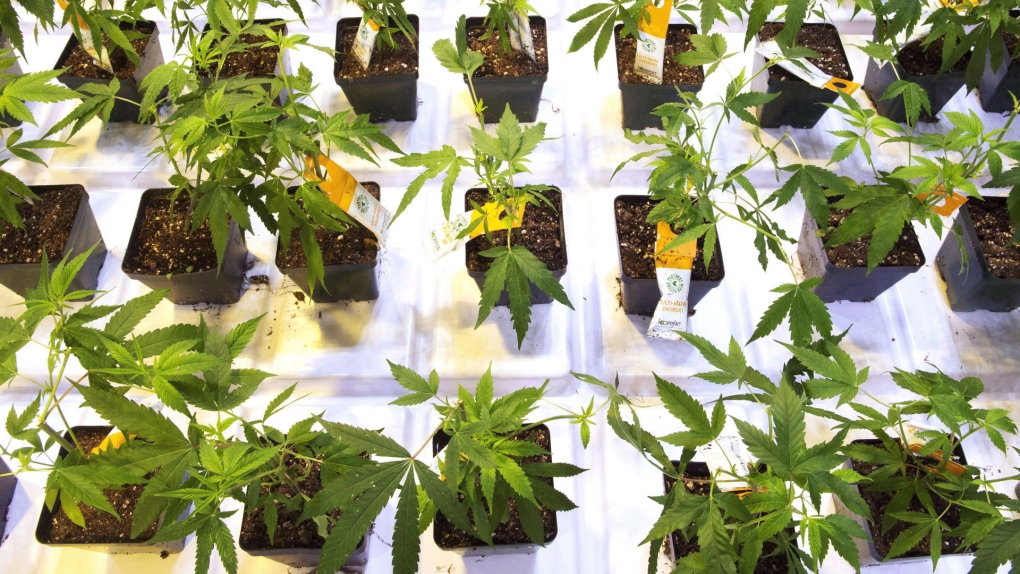You are here
Home 🌿 Marijuana Business News 🌿 Canopy books $829M loss in Q3, expects profits to come next year 🌿Canopy books $829M loss in Q3, expects profits to come next year

Canopy Growth Corp. reported Tuesday its third-quarter revenue rose 23 per cent to $152.5 million, beating expectations, yet the company sees its elusive goal of becoming profitable still a year away.
The pot producer said it lost $829.3 million in the three months ending Dec. 31, roughly half of which was due to impairment charges related to the closure of several production facilities last year. A year earlier, Canopy posted a net loss of $109 million.
Canopy's quarterly results come after a period when the company dramatically scaled back its Canadians operations in a move that resulted in the departure of 220 workers but allowed for $200 million in annual cost savings. That retrenchment happened amid an industry-wide glut of cannabis that prompted countless Canadian pot producers to report steep losses as they restructure operations to find a path to profitability.
Smiths Falls, Ont.-based Canopy said an increase in Canadian recreational and international medical cannabis sales, as well as improvements in its BioSteel and U.S. CBD business, helped to boost its revenue in the quarter. Its adjusted earnings before interest, taxes, depreciation, and amortization (EBITDA) loss came to $68 million in the quarter, compared to a $97-million loss a year earlier.
Analysts expected Canopy to report fiscal 2021 third-quarter revenue of $147.6 million and a $71.1-million adjusted EBITDA loss, according to Bloomberg data.
"We delivered another quarter of record net revenue, with growth across all our businesses, led by improved commercial and supply chain execution," said Canopy Chief Executive Officer David Klein in a statement.
Klein stated that he expects Canopy to report further cost cuts over the next 12 to 18 months, with as much as $200 million identified in possible savings. That will come through various organizational and supply chain efficiencies, he added.
The CEO also reiterated during a conference call with analysts that the company expects to enter the U.S. THC cannabis market by the end of the current calendar year amid hopes of new federal legislation or reform packages.
Canopy is also working with Constellation Brands Inc., the company's largest investor, on how to proceed with legalization efforts ahead of a possible entry into the U.S., he added.
"As we anticipate cannabis reform to gain momentum in the coming months, we're also accelerating our efforts to lay the foundation to win in the U.S. THC market, once it's permissible," Klein said during the call.
Jefferies LLC Analyst Owen Bennett said in a report to clients Tuesday that Canopy's Canadian revenues appeared to be "soft" as sales from so-called cannabis 2.0 products aren't growing as fast as expected. Canopy reported $63.3 million in its Canadian business, up from just $60.9 million in the prior quarter.
"This suggests little success to date in Canopy's attempts to improve its Canadian top-line shortcomings when it comes to strong brand equity across a variety of offerings," Bennett said.
Canopy said it now expects to report positive adjusted EBITDA during the second half of the 2022 fiscal year and positive operating cash flow a full year later. Revenue is also expected to rise 40 per cent year-over-year for the next two years, the company added. Those forecasts are based on an assumption that its share of the Canadian recreational and medical cannabis market will continue to grow while keeping capital expenditures below $200 million for the next two years.
The company said that its share of the Canadian market rose sequentially in its third-quarter from the prior three-month period to 15.7 per cent.
However, the company uses a proprietary tool to measure its market share that doesn't break out its methodology or how other companies fare.
Other data providers suggest Canopy's share of the Canadian market is much smaller than what the company's internal metrics state. For example, Raymond James pegs Canopy's market share at about 12 per cent, while data provider Headset believes it's roughly 9 per cent.
420 Intel is Your Source for Marijuana News
420 Intel Canada is your leading news source for the Canadian cannabis industry. Get the latest updates on Canadian cannabis stocks and developments on how Canada continues to be a major player in the worldwide recreational and medical cannabis industry.
420 Intel Canada is the Canadian Industry news outlet that will keep you updated on how these Canadian developments in recreational and medical marijuana will impact the country and the world. Our commitment is to bring you the most important cannabis news stories from across Canada every day of the week.
Marijuana industry news is a constant endeavor with new developments each day. For marijuana news across the True North, 420 Intel Canada promises to bring you quality, Canadian, cannabis industry news.
You can get 420 Intel news delivered directly to your inbox by signing up for our daily marijuana news, ensuring you’re always kept up to date on the ever-changing cannabis industry. To stay even better informed about marijuana legalization news follow us on Twitter, Facebook and LinkedIn.




